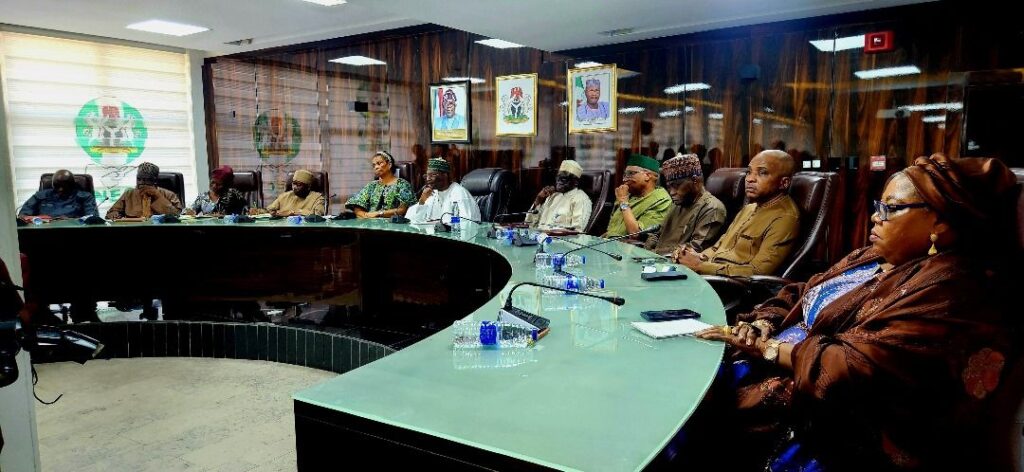A delegation of women civil society organisations, women religious associations, members of political parties, and gender advocates under the auspices of The Electoral Hub, was at the Independent National Electoral Commission (INEC) headquarters on a strategic advocacy engagement on advancing women’s political representation in Nigeria.
The Director of The Electoral Hub, Princess Hamman-Obels, noted that the visit was to advocate for the urgent passage and effective implementation of the 2025 Reserved Seats for Women Bill, aimed at increasing the number of women in the National Assembly and State Houses of Assembly.
According to her, the visit was also to explore collaborative strategies for increasing women’s participation and representation in elective positions and political party leadership.
Hamman-Obels, who emphasised the need for strengthening the gender and inclusivity initiatives of INEC, was optimistic that INEC and women would collaborate on practical strategies, align efforts, and mobilise collective action that ensures that the Reserved Seats Bill moves beyond promise into actionable reality, thus elevating women’s voices in Nigeria’s legislative processes and governance.
The delegation further underscored the critical role of INEC in the Reserved Seats Bill’s implementation, noting that INEC’s responsibilities extend beyond conducting the elections for these Reserved Seats to include creating special constituencies for these Seats across all 36 states and the Federal Capital Territory
Hamman-Obels added that there was a need for INEC to be prepared to conduct appropriate voter education to ensure the electorate understands the new processes and the significance of reserved seats in advancing representative democracy.
In his response, the INEC Chairman, Prof. Mahmood Yakubu, who described the visit as timely, highlighted INEC’s progress on gender inclusivity, noting that 55% of the departments and directorates at INEC’s Abuja headquarters were led by women.
Yakubu referenced the establishment of the Gender and Inclusivity Department, the revision of INEC’s Gender Policy, and the regular observance of International Women’s Day since 2024 as key indicators of the Commission’s ongoing inclusivity commitment.
However, the INEC Chairman acknowledged that much remains to be done, as he underscored affirmative action anchored in constitutional and legal reforms as the most effective means to achieve gender parity in elective offices.
Yakubu urged advocates to utilise the ongoing review of the 1999 Constitution and the Electoral Act 2022 to secure enforceable legal provisions guaranteeing women’s political representation.
The INEC Chairman reassured the delegation of the Commission’s steadfast partnership, affirming, “You should continue to count on the Commission’s partnership at all times.”
Leader of the Women’s Collective, Nkoyo Toyo, who highlighted enduring systemic barriers within Nigeria’s political culture, stressed that, besides the exclusion of women, persons with disabilities were also being excluded.
Toyo described political parties as gatekeepers that confine women to the tokenistic role of woman leader, limiting their political independence and leadership potential.
She called for urgent reforms to strengthen accountability within political parties, both established and newly registered, to foster genuine inclusivity. Drawing on global experiences, Ambassador Toyo underscored that voluntary quotas, legal mandates, and party reforms are proven tools in advancing women’s political participation and representation worldwide.
This advocacy visit signals a strengthened commitment by stakeholders, including The Electoral Hub, women’s civil society groups and INEC, to accelerate the realisation of the Reserved Seats for Women Bill, transforming it into a catalyst for political empowerment and democratic deepening in Nigeria.















